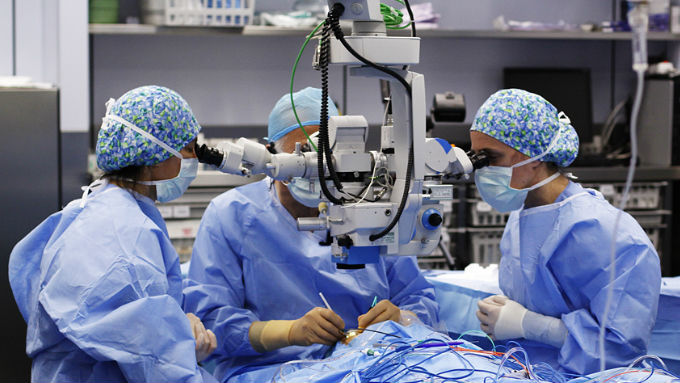On 29 and 30 May, IMO will host the third edition of Trends in Surgical and Medical Retina, a leading conference that will bring together around 350 experts from around the world. The event, directed by Dr. Borja Corcóstegui, the medical director of IMO and Spain’s highest-rated ophthalmologist according to the Healthcare Reputation Monitor, will feature the participation of prominent retinologists, such as Dr Stanley Chang (considered the father of modern retinal surgery) and Dr Mark Blumenkranz, a pioneer in the application of lasers to correct vision and leader in ophthalmic telemedicine, among others.
During the event, the latest developments in the treatment of retinal diseases will be presented and discussed. As Dr. Borja Corcóstegui says, “in recent years, there have been important steps forward in the treatment of retinal diseases.” New technologies make it possible to perform micro-incision surgery and improve viewing through a screen (instead of using the traditional microscope) to achieve maximum accuracy.
The conference will also address challenging, cutting-edge techniques such as suprachoroidal indentation to treat complications associated with myopia, developed by the Egyptian ophthalmologist Dr Ehab El Rayes and performed by very few specialists in the world.
Attendees will be able to watch nine live surgical cases, performed by IMO’s retina team in its operating theatres. These will be transmitted live to the auditorium, where they will be discussed and debated in real time.
As the conference will show, the specialists not only champion minimally-invasive surgery, but also increasingly effective medical therapies that preclude the need for surgery. This is the case with the new drug, ocriplasmin, indicated for closing macular holes in their early stages, or intravitreal injection of antiangiogenic drugs for the treatment of diseases such as diabetic macular oedema or age-related macular degeneration (AMD).
As regards the treatment of AMD, recent research shows that certain patients have a genetic predisposition to the disease. Because of this, genetic study has become a great ally for the treatment, in the not too distant future. of this and other genetic diseases through gene therapies, which are currently at an advanced stage of study.
These increasingly comprehensive studies indicate that, in the next decade, gene therapy will make available to patients new treatment methods and options, as will be explained by Dr Mark Blumenkranz, who has played a decisive role in the history of ophthalmology with his introduction of a revolutionary new laser to correct vision.
Another encouraging development is the retina chip, also known as the “bionic eye”. This works by electric stimulation and allows people who have lost their vision due to retinitis pigmentosa to perceive images. However, as explained by Dr Borja Corcóstegui, the Spanish advisor in the initial studies for the development of the chip, “we have to be cautious because, although some vision can be recovered, there is still a long way to go.”
